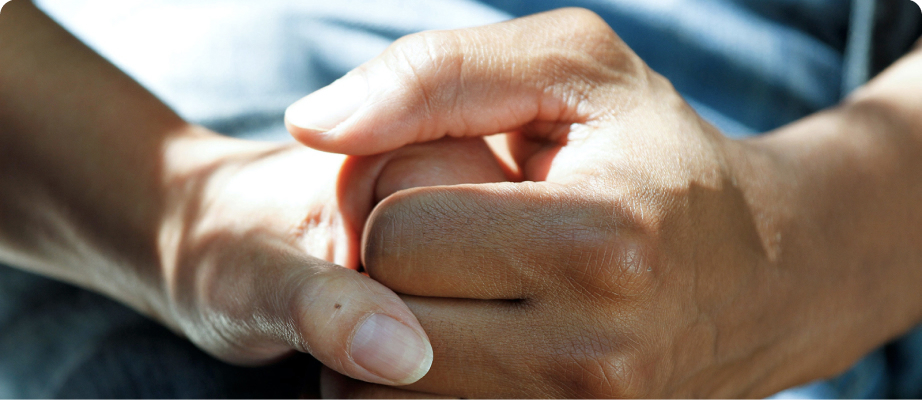Advice Center
Get tips and explore common end-of-life topics.

Executor Duties Checklist: Handling Immediate Matters
This is the first of a series on the duties of an executor. Think of it like a checklist, with everything an executor needs to take care of. To make this list as comprehensive as possible, we’ve divided the series into 12 parts.
To view the series in its entirety, follow this guide:
- Part 1: Handling Immediate Matters
- Part 2: Gathering Documents and Funeral Planning
- Part 3: Notifying Accounts and Collecting Information
- Part 4: Tying Up Loose Ends
- Part 5: Taking Inventory
- Part 6: Decisions Regarding the Estate
- Part 7: Administrative Duties
- Part 8: Applying for Benefits (For Spouses/Beneficiaries)
- Part 9: Managing the Trust Account (If Applicable)
- Part 10: Distributing Assets
- Part 11: Filing Taxes
- Part 12: Finalizing the Estate
When death happens, life doesn’t stop around us. That’s why the role of an executor is so essential.
Attending to dependents
First things first, attend to the living who are most in need. In most cases, there will already be a plan in place to ensure dependents are taken care of.
Depending on the situation, this may be a young child, an elderly person unable to care for themselves or someone with a disability.
Whatever the case, ensure there is a swift plan of action to get the dependent the care they need. Care and housing can be funded from the estate and you should be sure to keep track of expenses and documents like bills and receipts for costs incurred.
Some things to keep in mind:
- In the case of a dependent with an illness or disability, ensure you are able to understand their medical needs and be able to access things like prescriptions or contact information for their doctor.
- For a dependent child, inform their school of the situation and ensure they are able to take the time they need, while also getting the resources they need from their school and teachers.
Attending to pets
For pet owners, their pet is often a loved and treasured member of the family.
With their owner gone, pets can’t just take care of themselves. Right away, ensure there is a plan of care for pets - especially those with higher needs like dogs and cats. Appoint someone to walk, feed and clean up after a dog - otherwise the home may be subject to some unwanted messes.
You may have heard stories of someone claiming an estate was left to a pet. In both Canada and the United States, pets are considered property and are therefore unable to inherit estates.
A person can, however, leave a trust for a pet’s care or ensure the pet is left as a gift to a specific person in the will. Because pets are property and executors should not give away the deceased’s possessions before the will has reached probate court, you may need to seek a short-term solution for the pet’s care before handing it over to the designated beneficiary.
As with dependents, keep a record of costs incurred for pet care. This can be taken from the estate if properly documented and accounted for.
Cleaning, preparing and securing the home
In life, homes are our sanctuary. It’s where we come to congregate, celebrate and rest - as well as where the bulk of our possessions can be found.
That’s why it’s important to secure the home and all that’s inside it right away.
Changing locks and securing the property: You never know who may have keys to your loved one’s home. Even if they have no ill intentions, you can’t take any risks.
Executors also have a duty to ensure that assets are properly distributed. If family members have access to the home, they may take items before those items have gone through the proper process. Changing locks and securing the home helps guard against this.
Collecting and handling mail: Take care of any mail that may have accumulated - this can make a home appear vacant. Or, in the case of a community mailbox, unable to accept any additional incoming mail. You should also notify the postal authority in your area about a forwarding address.
Cleaning: Ensure that all perishable food items are removed and anything that could begin to rot is thrown away. Take care of anything that may attract pests, like garbage or dirty dishes.
Yard work and garden care: Depending on the season, you may need to ensure gardens are watered or snow removal is taken care of.
Plant care: Water and care for indoor plants as needed.
Electronics: Unplug any appliances that aren’t in use and won’t be needed in the near future. It can help conserve energy and adds a layer of security in the event there is something like an electrical storm.
Additional security: Consider adding security features like a home security camera or timed lights to help add another layer of security to the home in the event it will be vacant for an extended period.
Securing valuables
Once the home is secure, the valuables inside have some additional protection.
Valuables like antiques, jewelry, and big ticket electronics are often bequeathed in a will. Sentimental items of no monetary value deserve the same treatment, especially as those are often heirlooms or specific reminders of a loved one for beneficiaries. It’s essential to keep them safe until the distribution of assets occurs.
Until then, there are a few things you can do as an executor to help keep valuables secure.
- Ensure you know where all valuables are kept. Check for things like safety deposit boxes and other storage locations outside of the home.
- Pull together all valuables with a high monetary value and make sure they are in a secure location. This may be a safety deposit box or other secure location.
- Secure the home against intruders or family members who may take items before assets are distributed.
- Keep an inventory of all valuables and a record of where you store them. Keep any receipts for any storage or safety deposit boxes you rent.
- Handle items with care and store them properly.
Notifying loved ones
Learning a loved one has died is one of the most difficult things a person can hear. As an executor, approach this with compassion and tact.
Before making any announcements on social media or submitting a death notice to the local newspaper, let close family and friends know first. Make a prioritized list with contact information and work your way through it. The best thing to do is see people in person. Failing that, make phone calls.
To avoid word spreading before everyone on your list has been informed, let people know to keep the news to themselves.
After the most important people have been informed, you can start looking at a wider announcement, such as publishing a death notice or making an online announcement. There may be costs associated with making an announcement, so keep a record of all expenses.
Next in the Executor Duties Checklist, gathering documents and funeral planning.
